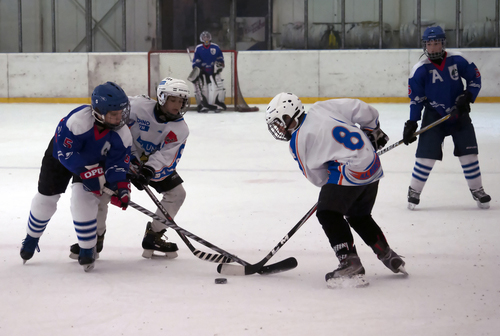
Controlling Asthma with Cold-Weather Sports
Posted in:
Having asthma, doesn’t mean you can’t play sports!
Being an asthma sufferer for most of my life, I’ve gone through just about every kind of treatment ever known. I’ve been hospitalized and placed in oxygen tents as a child and given adrenaline shots, along with some foul-tasting drugs. In case you’re not aware, the symptoms range from wheezing, coughing, and chest tightness, to shortness of breath.
Although many people might associate asthma with outdoor spring sports, cold, dry air in the winter, both indoors and out, can be a challenge for even the healthiest person; the air must be moist for us to breathe properly. In fact, exercise-induced asthma can affect even those who do not normally suffer from the condition. A University of New Mexico study found that 19 percent of ice hockey players were diagnosed with asthma and 11.5 percent with exercise-induced asthma (EIA). And it doesn’t just affect hockey players like me. The same study found that 22 percent of cold-weather Olympic athletes in 2000 were diagnosed with asthma, used an inhaler or both!
Here are 10 ways I keep on top of my asthma and in the hockey game, but these tips could really apply to any cold-weather athlete:
- Doctor’s orders: I faithfully follow the advice of my doctor, taking all medications as prescribed.
- Take two: In the locker room before my game, I have two puffs of a bronchodilator. This keeps my airways open.
- Warm up: Pre-game warm-ups are essential. I take a few laps before every game to get my heart rate up and the oxygen-rich blood pumping to my lungs.
- Through the nose: As much as possible, I take full breaths and try to breathe through my nose. This way, the air I take in is moister than that which I get through my mouth.
- Short shifts: I always try to limit my play time to no more than a minute each shift. Otherwise, it takes me that much longer to recharge for the next one.
- Drink up: I’m careful to drink plenty of water before, during, and after the game.
- Shots: During flu season, I make sure to get a flu shot
- The common cold: I do everything possible to avoid catching colds. Like many asthmatics, I’m allergic to my own mucous. Besides the obvious tactic of doing my best to avoid contact with anyone who has a cold, I make sure to wash my hands frequently to keep those cold germs at bay.
- Rest up: Getting the proper amount of rest is critical. It keeps my immune system in top form.
- Skip it: If I find myself out of breath during a game, I skip a shift or two to allow my body to recover.
You know your own body better than anyone. If your symptoms are such that you’re struggling for each breath – or even if you just feel generally lousy – stay home and rest.
Finally, if you suffer from asthma, see your doctor. With proper diagnosis and treatment, asthma can be controlled. There is no reason you shouldn’t be able to enjoy a normal life, whether you play sports or not.
Warren Tabachnick has suffered from asthma and allergies since he was 4 years old. He manages to keep his condition under control and enjoy a decent quality of life. Published by permission of CrossIceHockey.com–Where Rec Hockey Lives. © 2014 Digital Media Publications, Inc. All rights reserved.

